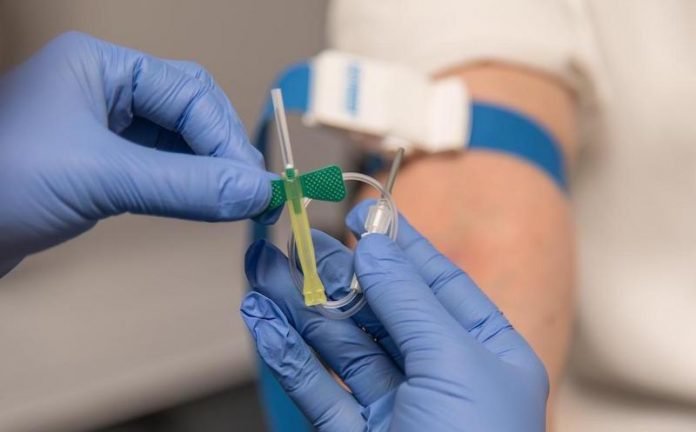
Scientists from the University of Vienna have developed and validated an algorithm that can help healthcare professionals identify who is most at risk of dying from COVID-19 when admitted to a hospital.
The tool, which uses artificial intelligence (AI), could help doctors give critical care resources to those who need them most.
The research is published in eLife and was conducted by David Gómez-Varel et al.
In the study, the team used data from routine blood draws performed on nearly 30,000 patients hospitalized in over 150 hospitals in Spain, the US, Honduras, Bolivia, and Argentina between March 2020 and February 2022.
They were able to capture data from people with different immune statuses—vaccinated, unvaccinated and those with natural immunity—and from people infected with every SARS-CoV-2 variant.
The resulting algorithm—called COVID-19 Disease Outcome Predictor (CODOP)—uses measurements of 12 blood molecules that are normally collected during admission.
This means the predictive tool can be easily integrated into the clinical care of any hospital.
CODOP was developed in a multistep process, initially using data from patients hospitalized in more than 120 hospitals in Spain, to “train” the AI system to predict hallmarks of a poor prognosis.
The next step was to ensure the tool worked regardless of patients’ immune status or COVID-19 variant, so the team tested the algorithm in several subgroups of geographically dispersed patients.
The tool still performed well at predicting the risk of in-hospital death during this fluctuating scenario of the pandemic.
This suggests the measurements CODOP is based on are truly meaningful biomarkers of whether a patient with COVID-19 is likely to deteriorate.
The team found that the algorithm can predict the survival or death of hospitalized patients with high accuracy until nine days before either outcome occurs.
The team says the performance of CODOP in diverse and geographically dispersed patient groups and the ease of use suggest it could be a valuable tool in the clinic, especially in resource-limited countries.
If you care about Covid, please read studies that many COVID-19 survivors suffer from a new disability, and CBD from cannabis may inhibit COVID-19 infection.
For more information about Covid, please see recent studies about the most effective face-mask practices to reduce spread of COVID-19, and results showing new treatment option for COVID-19.
Copyright © 2022 Knowridge Science Report. All rights reserved.



